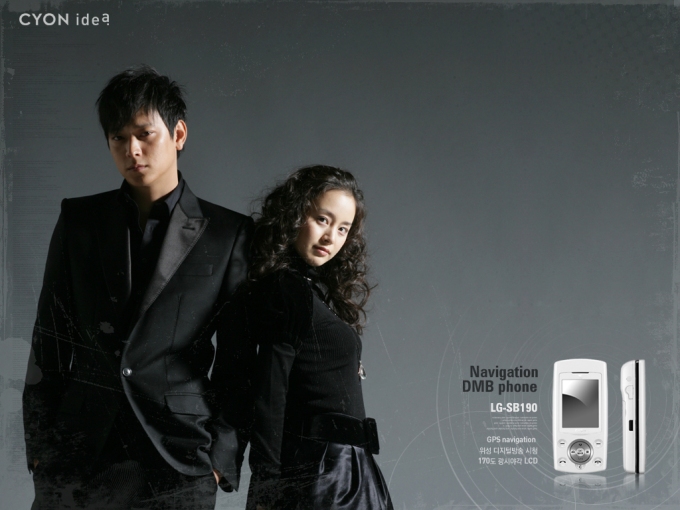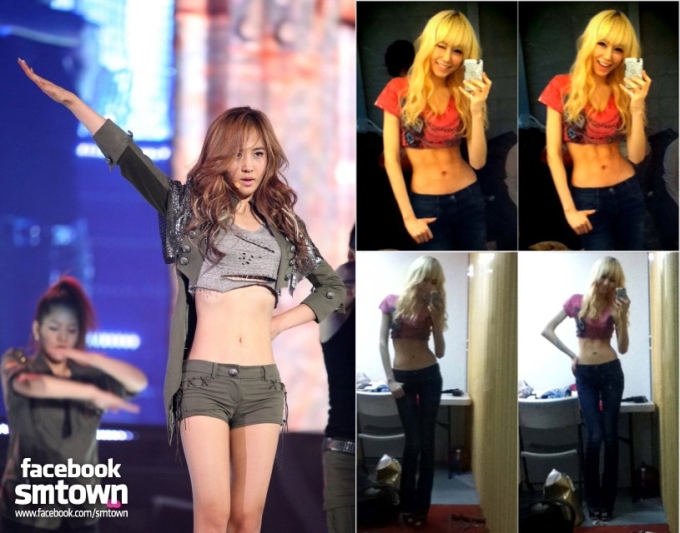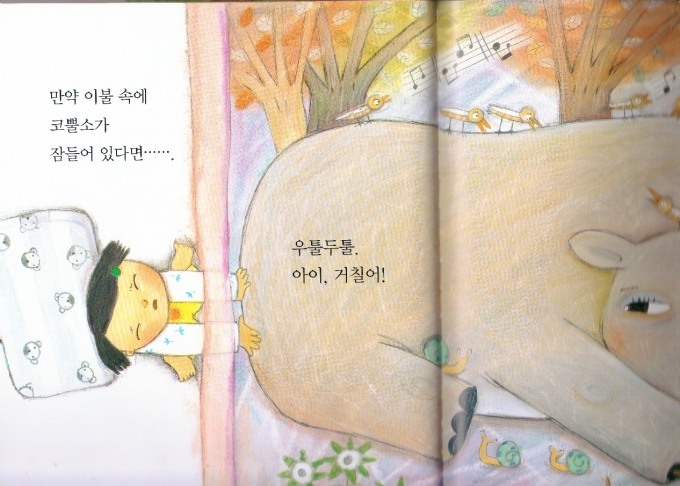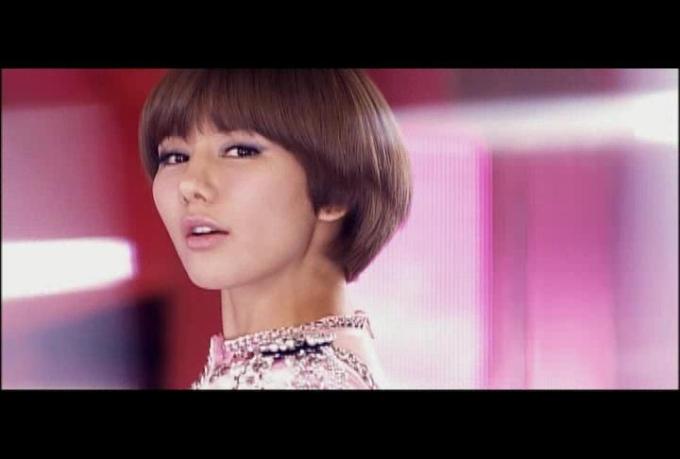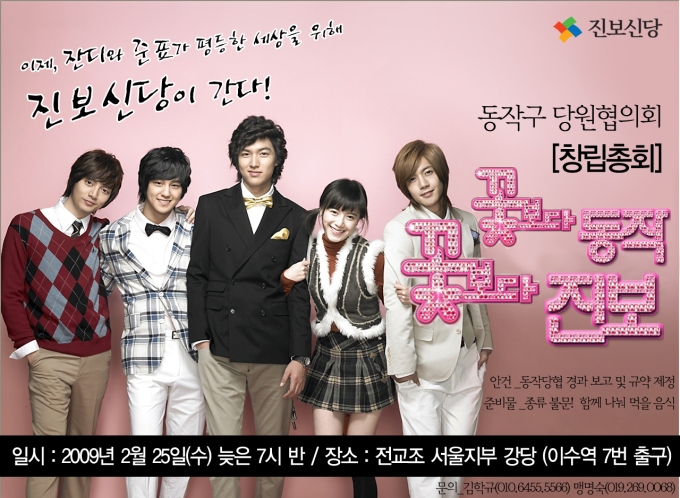 (Source)
(Source)
Do Korean censors disproportionately target female singers?
No, not just those shameless hussies that sing about what they’d actually like to do with their love-interests I mean, and/or dance and show some skin to that effect. Because despite some obvious exceptions, I’d wager that Korean censors are generally equal-opportunity prudes.
Rather, I also mean those female singers that promote such harmful ideas as, say, that romance involves more than just sitting around looking pretty, waiting for a guy to notice you. Or that when you’re angry with your partner, you should say so. As whatever the actual rationales given for the banning of their work, be they indirect advertising, mention of alcohol, not wearing seatbelts while driving, or alleged double entendres in completely innocuous English phrases, somehow it seems to happen to women’s songs much more than it does to guys’.
Or maybe I just get that impression because I only ever pay attention to the women’s songs.
So, starting today, and hopefully finishing over the summer break, I’m going to painstakingly go over every banned song and music video from January 1 2011, noting the whos, hows, and whys, then moving on to the next…all the way until December 31. As I finish each month, I’ll write up the results and my analysis here.
I guess the next songs I’ll be looking at will be G-Dragon (지-드래곤) and T.O.P.’s (탑) Knockout and Don’t Go Home then, banned on the 4th and 5th of January respectively (with the latter banned a second time on the 12th!). But before I do, let’s jump ahead to July, when the Youth Protection Commission (청소년보호위원회) of the Ministry of Gender Equality and Family (MOGEF; 여성가족부) banned After School’s (애프터수쿨) Funky Man (펑키맨) for its “sexually suggestive” lyrics.
Not just because I’m a big After School fan, or because the recent news that it’s been unbanned is what finally inspired me to do this little project. But also because the muddled way the banned lyrics are being reported on Soompi (and just about everywhere else) clouds the slight girl-power theme of the song as a whole, and in turn possible — but I stress, only possible — alternate reasons for its banning.
Let me explain:
 (Source)
(Source)
애프터스쿨 – Funky Man by Nana/나나 and Lizzie/리지; also featuring Kyung-min/경민 of Pre-School Girl
commin oh ma funkyman uh woo 좀더 깊숙히
fallin I I I I I can break U down!
…
날 흔들어봐 빙빙 Swing Ma Boy
날 유혹해봐 Keep it 맘대로
네게 빠져들게
그래 좀 뻔뻔하게
갖고 싶다면 Ring Ring Ring My Bell
느낌이 없어 넌 좀 부족해
못 참아 지루한 건
말해봐 너만의 Slogan
Commin, oh ma funky man, uh woo deeper
Fallin, I I I I I can break u down!
…
Shake me round and round, Swing ma boy
Try to seduce me, Keep it as you want so that I will fall for you
That’s right, shamelessly
If you want to have me ring, ring, ring my bell
I feel nothing, this isn’t enough
I can’t stand this boredom
Tell me your own slogan
 (Source)
(Source)
Originally, I copied and pasted the lyrics from Naver here, which still requires ID despite the unbanning. Realizing I was struggling with the translation because of the essentially arbitrary choice of line breaks made in that though, I decided to reformat them all, to better fit how they’re actually sung. And once I did, then in particular the question of who wants to have whom in line 8 — 갖고 싶다면 — suddenly made sense: if he wants to have her, the singer, then he has to ring ring ring her bell.
Also, if that “ring ring ring my bell” is just not the random, unrelated Konglish that it first appears, but actually an integral part of the song, then that opens the possibility that some of the other Konglish may be important too. Bearing that in mind, then the “slogan” in the last line for instance, isn’t so much lame as a handy rhyming device for the “건/geon” at the end of the line that precedes it.
But in that case, what exactly does the the “try to seduce me, keep it as you want so that I will fall for you” of line 4 mean? Does it mean that, very very literally, being shamelessly dominated is what is going to ring ring ring her bell, my surprising ultimate reading of the first verse?
You can imagine that it was with some trepidation then, that I turned my attention to the chorus…
 (Source)
(Source)
가슴 뛰는 나를 향해
O.K 짜릿짜릿하게
그렇게 오오오 (오오오) 내게 다가와 DON`T STOP
지금 내가 원하는건
O.K 아찔아찔한 Game (어떻게)
오오오 (오오오) 어서 달려와, 소리쳐봐
난난나 Crack Crack Funky Man! 오 baby baby baby shout
난난나 Rock Rock on Funky Man! 오 내게 내게 미쳐봐
오늘밤 너와 단둘이, 너무나 달콤한 story
나만을 위해 춤추는 puppet
My heart is thumping, come to me
OK thrillingly
Like that oh oh oh (oh oh oh), come to me DON’T STOP
What I want now
OK, a dizzy game (how?)
Oh oh oh (oh oh oh), hurry to me and shout
Na-na-na crack crack funky man! Oh baby baby baby shout
Na-na-na rock rock on funky man! Oh, try to be crazy about me me
Tonight, just the two of us
[It’ll] be such a sweet story
You are just a dancing puppet for me
 (Source)
(Source)
Great — that was the very opposite message in fact, and one which is continued in the the rest of the song too. But first, consider the way the banned lyrics are being described on Soompi:
The controversy was caused over the following lyrics from “Funky Man”:
“Oooh Ooh, a little deeper / shake me around / try and seduce me / for my chest that is pumping / OK make me tingle like that oh oh oh”
What do you think? Are the lyrics explicit?
Now that we’ve covered all of those particular lyrics, then you can see that they’re actually cobbled together from verse 1 and the chorus, whereas Soompi makes them look like a direct quotation of just two lines*. Why this difference is important, is because already they’re clearly not the only “sexually suggestive” lyrics throughout the song, which raises the question of why only those ones above were singled out by MOGEF. Let alone why this song was banned when others with equally or even more explicit lyrics weren’t.
Could the censors at MOGEF, perchance, have had different, unspoken motivations? Were they, in fact, just annoyed at how “You are just a dancing puppet for me” belittled men, and so banned it using the sexually suggestive lyrics as an excuse? Or alternatively, were they perhaps a little unsettled by what turns out to be a song not about a woman who wants to be dominated, but rather one very much on top?
Alas, all that is mere speculation at this stage, and arguably reading far too much into it — indeed, there’s been at least one occasion when MOGEF was actually quite explicit about banning a song for belittling men. Also, how much of an alpha girl does the woman in this song really come across as? Not just because of that first verse, but also because, whatever the song, being assertive and confident doesn’t necessarily mean that the woman demands that the guy come to her. Rather, shouldn’t she really be going after him herself?
*I translated “OK 짜릿짜릿하게” as “Ok, thrillingly”, rather than “OK make me tingle like that”, as quoted at Soompi. But I can’t tell if it’s an adverb or a causative, so either is possible.
 (Source)
(Source)
commin oh ma funkyman uh woo 좀더 깊숙히
fallin I I I I I can break U down!
…
날 바라보면 쿵 쿵 like a boom
넌 두근두근 쿵 쿵 feel so good
내게 말걸어봐
그래 좀 당당하게
날 원한다면 몸을 움직여
다른 남자는 모두 숨죽여
못참아 답답한건
시작해 너만의 Slogan
Commin, oh ma funky man, uh woo deeper
Fallin, I I I I I can break u down!
…
If you watch me your heart will pound like a boom
You throb and beat, boom boom feel so good
Try to talk to me,
Yes, like that, confident and commanding
If you want me move your body
Other men hold their breaths
I can’t stand it, this frustration
Start, your own slogan
 (Source)
(Source)
Finally, there’s the chorus, the first two lines of the first verse, the third verse, then the first two lines of the first verse again. To make it easier to follow along, I’ll put them all together:
commin oh ma funkyman uh woo 좀더 깊숙히
fallin I I I I I can break U down!
…
가슴 뛰는 나를 향해
O.K 짜릿짜릿하게
그렇게 오오오 (오오오) 내게 다가와 DON`T STOP
지금 내가 원하는건
O.K 아찔아찔한 Game (어떻게)
오오오 (오오오) 어서 달려와, 소리쳐봐
난난나 Crack Crack Funky Man! 오 baby baby baby shout
난난나 Rock Rock on Funky Man! 오 내게 내게 미쳐봐
오늘밤 너와 단둘이, 너무나 달콤한 story
나만을 위해 춤추는 puppet
말해봐 boy
모든걸 보여줘
서둘러 boy
이밤이 끝나기전에
매일 꿈같은 이야기
해주고픈 이맘 Crazy
오 가져봐
오 느껴봐
commin oh ma funkyman uh woo 좀더 깊숙히
fallin I I I I I can break U down!
Commin, oh ma funky man, uh woo deeper
Fallin, I I I I I can break u down!
…
My heart is thumping, come to me
OK thrillingly
Like that oh oh oh (oh oh oh), come to me DON’T STOP
What I want now
OK, a dizzy game (how?)
Oh oh oh (oh oh oh), hurry to me and shout
Na-na-na crack crack funky man! Oh baby baby baby shout
Na-na-na rock rock on funky man! Oh, try to be crazy about me me
Tonight, just the two of us
[It’ll] be such a sweet story
You are just a dancing puppet for me
…
Try to speak boy
Show me everything
Hurry boy
Before this night ends
Everyday, a story like a dream
This heart which wants to do [that] is crazy
Oh, try to have [me]
Oh, try to feel [me?]
…
Commin, oh ma funky man, uh woo deeper
Fallin, I I I I I can break u down!
 (Source)
(Source)
Did anyone else guess that the song’s actually about cheerleaders? No, me neither. And seeing as how management company Pledis Entertainment also claimed that there’s nothing sexual in the lyrics at all, then I’m not going to give much credence to that!
What I do take away from the song though, is a lack of substance and logic to the official reasons for its banning, which at least opens the possibility that the official reasons are not the real ones. And while mere possibilities are not evidence of course, if the biggest gaps between official denunciations of songs and their reality consistently occur in those about assertive females (sexually or otherwise), then, well, maybe that’s something.
Yes, I realize that that’s a little subjective, so I welcome alternative suggestions for judging this sort of thing. But either way, there’ll be far too many songs to cover to do much analysis. Instead, my aim is that all of the evidence I’ll present over the next few months will enable you to decide for yourselves.
Honestly though, as I type this I’m no longer so sure that the double-standards are quite as big as many people assume, not least myself. What do you think?


